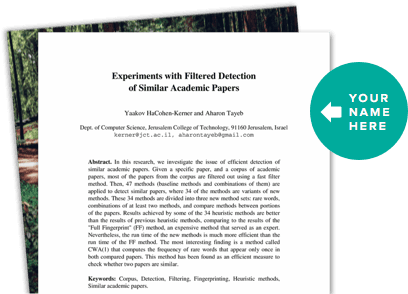About This Project
Knowing gene expression and what controls their activities is essential in plant science research. However, creating genetically modified plants, especially woody plants like peaches, to study gene expression is daunting. Interestingly, peach protoplasts (cells with their outer walls removed) could be a great solution, where they work like tiny test tubes, allowing researchers to test many potential genes quickly. We aim to develop a peach protoplast system for evaluating gene expressions.
Ask the Scientists
Join The DiscussionWhat is the context of this research?
The US contribution to global peach production has declined from 100,000 tons to 61,000 tons over the past decade, resulting in a drop in the US world market share from 17% to 8%. This decline can be attributed to biotic and abiotic challenges in peach production areas, which could potentially be mitigated through advanced breeding methods, including transgenic technology. However, traditional breeding poses significant challenges for peach researchers due to long breeding cycles and the low transformation efficiency caused by tissue culture recalcitrance, which has hindered promoter characterization and gene function analysis. A protoplast-based transient transformation system offers a promising solution by enabling rapid promoter characterization, gene expression analysis, and the evaluation of genome-editing reagents. Genes validated through protoplast expression can subsequently be employed in stable transformation efforts, which is a labor-intensive and highly skilled task.
What is the significance of this project?
It was once believed that protoplasts from different tissues acted alike until Faraco et al. (2011) showed tissue-dependent gene expression in protoplasts. Studying Petunias, they showed that protoplasts derived from petals had a different gene expression pattern than protoplasts from mesophyll cells. In peach, only four studies over five decades have reported successful protoplast isolation from roots and leaves, with none addressing promoter (gene expression drivers) characterization or gene expression analysis. This study aims to optimize root and leaf protoplast isolation and transformation using tissue-specific promoters to analyze cell-specific biological processes. To develop widely accepted biotic/abiotic stress-resistant peach lines with localized expression of resistance genes, a tissue-specific gene expression system is essential. Establishing such a system will enable gene evaluation in peaches for developing climate-smart plants through advanced breeding efforts.
What are the goals of the project?
This project on protoplast transformation is designed with our long-term goal of developing armillaria root rot-resistant genetically modified peach rootstocks, which, after grafting, will produce a fruit that will be non-transgenic. In the initial stage, we aim to establish protoplasts as gene expression systems to quickly test their expression without producing actual transgenic plants. We selected the wheat oxalate oxidase (TaOXO) gene, which has been demonstrated to provide fungal blight resistance in American chestnut. Additionally, two promoters (gene expression drivers), a soybean root-specific and apple ubiquitin, were selected to drive TaOXO expression. In the first quarter, leaf and root protoplast extraction from the peach (cultivar Guardian) will be optimized. The protoplast transformation protocol using TaOXO and the two promoters will be optimized in the second quarter. Results will be analyzed and prepared for publication in the final quarter.
Budget
We request $3,500 to cover consumables, reagents, and services. $1,000 for plasticware, including micropipette tips, tubes, vials, slides, coverslips, and Petri dishes. These are required for the experimental procedures, including protoplast and RNA extractions and qRT-PCR analysis. $2,000 for chemicals (Manitol, KCl, CaCl2, NaCl, MES, PEG) and reagents (Evan's blue dye), including enzymes (Macerozyme R-10 and Onozuka R-10) are needed for protoplast isolation. The isolated protoplast will be stained using Evan's blue and observed under the microscope to check their viability before transformation. Since transformation requires a large quantity of plasmid DNA, a Plasmid midi prep kit will be used to extract it from bacteria. RNA from the transformed protoplasts will be isolated using an RNA isolation kit and converted to cDNA using a cDNA synthesis kit. $500 will be used for oligo synthesis needed to check gene expression using qRT-PCR.
Endorsed by
 Project Timeline
Project Timeline
Mannitol (osmoprotectant) concentration and explant age will be tested for protoplast yield and viability in the first quarter. In the second quarter, a plasmid that harbors GFP will be used for optimizing protoplast transformation. In the final two quarters, leaf and root protoplasts will be transformed with the already well-characterized TaOXO gene using soybean root-specific and apple ubiquitin promoters. Findings will be analyzed and prepared for publication in the last quarter.
Jan 31, 2025
Project Launched
Mar 31, 2025
Optimizing mannitol concentrations and explant age for protoplast yield and viability
Jun 30, 2025
Optimizing plasmid concentrations for protoplast transformations using GFP
Nov 30, 2025
Transforming root and leaf protoplast using tissue-specific promoters
Dec 31, 2025
Data analysis and preparation for publication
Meet the Team
Affiliates
Jyoti P. Kakati
Jyoti P. Kakati, Ph.D., is a Research Associate at the Pee Dee Research and Education Center in Florence, SC, USA, a research center from Clemson University, SC. As a plant science researcher, he has over six years of experience in plant physiology, metabolomics, lipidomic, plant tissue culture, plant transformation and molecular biology. He is proficient in conceptualizing, designing, and implementing independent projects on major oil crops (soybean and peanut) under controlled (laboratory, growth chamber, greenhouse) and field conditions for studying the impact of abiotic stresses (heat and drought) on different growth stages of the plants. He has been an excellent communicator, with skills proven useful in peer-reviewed publications and oral and poster presentations. He is a good team player and leader with futuristic views and a strong belief in disciplined work to achieve them.
Growing up in an agricultural family in northeast India and living in different places while earning professional and academic experiences have made him a global citizen. His friends and colleagues have always praised him for his friendly and easygoing nature while meeting common goals without compromising the quality of the work.
Gautam Saripalli
Dr. Gautam Saripalli joined as a postdoctoral fellow in Dr. Sachin Rustgi’s group at Pee Dee Research and Education Center in Florence, SC, USA, in September 2023. Before joining here, he worked in wheat genomics at the University of Maryland (UMD) as a postdoc for 2 years (September 2021 to September 2023). He holds a master's degree in Agricultural Biotechnology from Anand Agricultural University, Anand, Gujarat and a Ph.D. from Chaudhary Charan Singh University, Meerut, located in India. During his Ph.D., he worked in genomics for biotic and abiotic stress tolerance in wheat. He published over 20 papers in this area (https://scholar.google.co.in/citations?user=8uflux4AAAAJ&hl=en) during his Ph.D. and postdoc tenure at UMD. At Dr. Rustgi’s lab, he will be focusing on peach genomics and will continue to work in wheat genomics. In peach, his work involves the development of peach rootstocks resistant to Armillaria root rot (ARR) while concurrently minimizing decomposition rates and carbon cycling within the environment using molecular biology approaches.
Sachin Rustgi
Dr. Sachin Rustgi is an Associate Professor of Molecular Breeding in the Department of Plant and Environmental Sciences at Clemson University. He is also a Faculty Scholar at the Clemson University School of Health Research and the Center for Human Genetics, and an Adjunct Associate Professor in the Department of Crop and Soil Sciences at Washington State University, Pullman, the Department of Genetics and Plant Breeding at Ch. Charan Singh University, Meerut, and Sher-e-Kashmir University of Agricultural Science and Technology, Kashmir. Dr. Rustgi’s research primarily focuses on developing dietary therapies for individuals with celiac disease or allergies to wheat or peanuts, developing biomarkers for heat tolerance in soybeans and peanuts, and creating novel strategies to mitigate major insect pests and fungal pathogens affecting primary South Carolina crops. His work has led to several high-impact publications in internationally recognized journals. Additionally, Dr. Rustgi has authored or edited three books. In recognition of his academic contributions, he received the Faculty Excellence in Research Award from the Washington State University College of Agricultural, Human, and Natural Resource Sciences, and the See Fellow Award from the Society of Extension Education in Agra, India.
Additional Information
This study will establish protoplasts as a plant model for evaluating gene expression and genome editing constructs in peach and other woody plants. It will support ongoing research on Armillaria root rot (ARR) resistance in peach, benefiting efforts to assess genes and promoters for biotic and abiotic stress tolerance. ARR, a destructive fungal disease, kills thousands of peach trees annually, causing over $8 million in losses for peach growers in South Carolina and Georgia. The results will inform future peach in planta bombardment (iPB) experiments using a construct with the wheat oxalate oxidase gene, driven by a root-specific or constitutive promoter, to develop ARR-resistant rootstocks. This system could also be applied to other Rosaceous trees of economic importance.
Project Backers
- 0Backers
- 0%Funded
- $0Total Donations
- $0Average Donation




